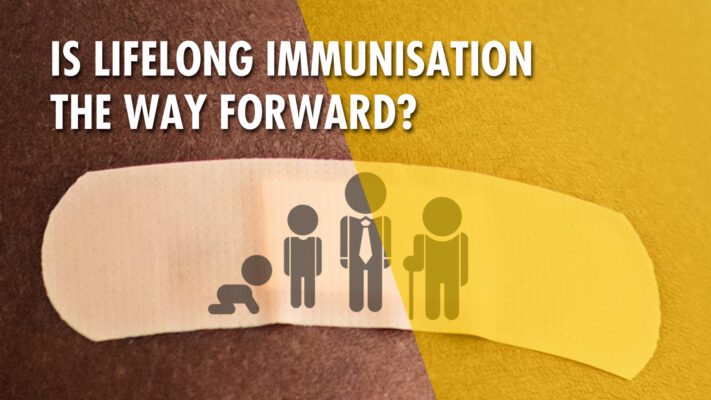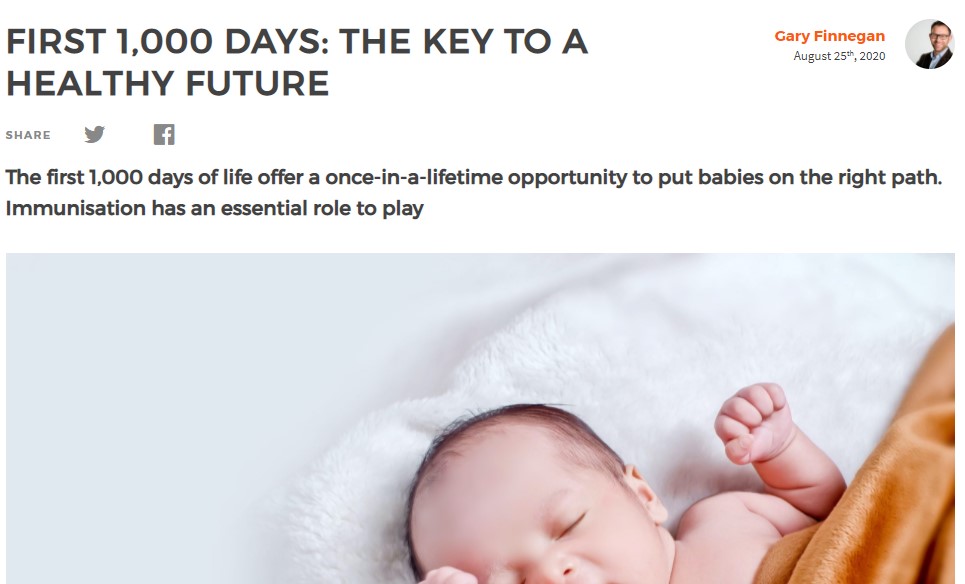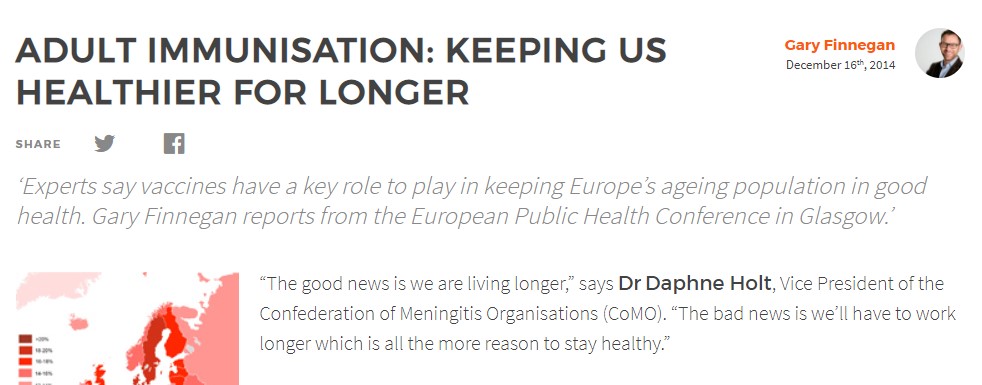Vaccines are not just for kids. Infant immunisation programmes play a vital role in children’s health, protecting against measles, pertussis, diphtheria, mumps and more. But while some may associate vaccination with early childhood, there is increasing focus on protecting people of all ages.

This is reflected in our own archive: in the 10 years since Vaccines Today was launched, there has been a steady shift away from focusing primarily on children in favour of a broader approach to immunisation.

For example, HPV vaccines given in early adolescents prevent cervical cancers; some meningitis vaccines are offered to teenagers and young adults; flu and pertussis vaccines are offered during pregnancy; health workers are advised to have annual flu (and perhaps COVID-19) vaccines; and older people can have vaccines against flu, pneumococcal disease and shingles.
Travel vaccines and catchup vaccination campaigns also aim to reach people who missed out on childhood vaccines or who may need a booster shot. And people with chronic conditions such as diabetes, heart failure and lung disease may be prioritised for flu vaccines.
Public health experts increasingly view vaccination as a way to keep people healthier for longer, allowing us to contribute to our families, communities and the economy. Some countries have raced ahead of others. Our five-part series on Italy traces the country’s successful development of a Calendar for Life which embeds life-course immunisation in the national vaccination programme.

For Vaccines Today, our collaboration with the Coalition for Life-Course Immunisation, and membership of the World Coalition on Adult Vaccination, reflect our own commitment to raising awareness of immunisation for people at all ages and stages of life. Neither of these networks existed when we launched our site, but we are proud to be active members of both.

All of this incremental progress has been positive. But it is now clear that COVID-19 has changed the way we view vaccination, perhaps permanently.
Adults of all ages in high-income countries are being offered vaccines against COVID-19, and teenagers are also eligible in some areas. Many of those prioritised for vaccination in the initial COVID-19 vaccine rollout were in priority risk groups for influenza vaccine, such as older people, health professionals and those with underlying conditions.

As a result, millions of people who have rarely thought about vaccines before the pandemic have now experienced vaccination for the first time in decades. Adult vaccination infrastructure has been strengthened, with improved IT systems, and new lists of vulnerable adults, while health professionals have gained valuable skills and experience with vaccination.
This presents a real opportunity to step up flu and pneumococcal vaccination in future, while potentially adding to opportunities for vaccinating adolescents and others. Above all, it should accelerate the shift away from viewing vaccination as primarily a feature of children’s health.
The question of whether this can be sustained is addressed in a recent report by the Coalition for Life Course Immunisation. It suggests that, at least in some European countries, COVID-19 vaccination programmes could be a basis on which to make lasting improvements to national changes.
‘COVID-19 has definitely raised the profile of vaccinating across all ages, especially for older age groups and vulnerable groups,’ says Sam Nye, CoMO Network Lead for Meningitis Research Foundation. ‘We need to maintain awareness around the need for vaccination and the fact that the groups who have needed COVID vaccines would also benefit from other kinds of vaccination in future. And those who weren’t first on the list for the COVID vaccine might in fact be more vulnerable to other kinds of diseases.’
This is echoed by Gertraud Daye, Independent Expert on Older People, Austria, who says that people of all ages are now interested in vaccines for the first time and there is an opportunity to keep up this momentum. ‘Health services could continue to consider not only COVID-19 vaccines but life-course immunisation in general as part of everyday life also in the coming years.’
Francisco Gimenez Sanchez at the Balmis Institute of Vaccines in Spain says even some doctors tended to think of vaccines as a priority for infants, with the exception of flu vaccination for older people. The legacy of the pandemic will depend on how the public views COVID-19 vaccine rollout programmes.
‘The success of COVID-19 vaccines will influence the future and we should offer good information about how the pandemic is being defeated thanks to vaccines,’ he said. Prof Giminez has founded the Balmis Observatory, a research project designed to track vaccine sentiments on social media. Researchers aim to develop an app to detect outbreaks of misinformation which might otherwise undermine life-course vaccination efforts.
While it may feel like a cliché to say the pandemic has ‘changed everything’, when it comes to attitudes to vaccination, there is a strong likelihood that COVID-19 vaccines will transform how we think about all vaccines for some time to come.
‘COVID-19 has brought home to everyone the need to be vaccinated whatever one’s age or circumstance,’ said Daphné Holt, Chair of the Coalition for Life-Course Immunisation. ‘We are working with all our energy to make this a permanent change in attitude.’




